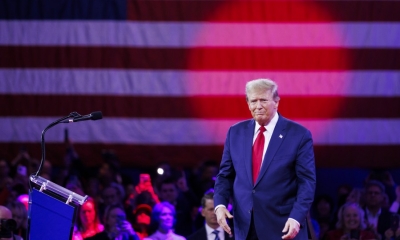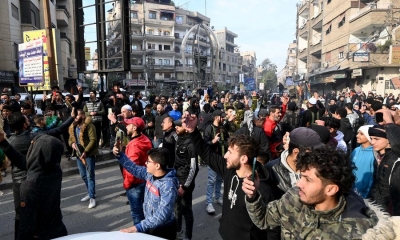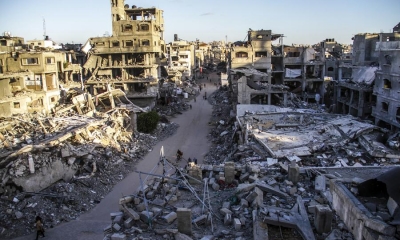Afghanistan and the Demise of US Hegemony
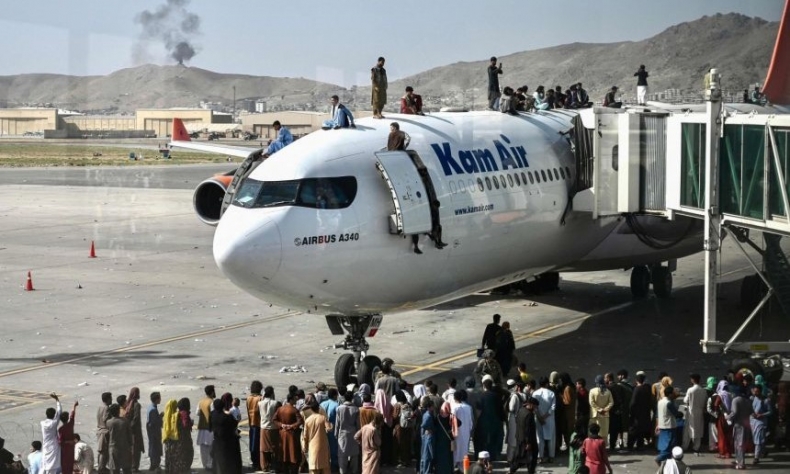
The essence of the policy failure is that the US should not have invaded Afghanistan in the first place.
The collapse of Washington’s puppet regime in Afghanistan stunned the world. The consequences for United States foreign policy will impact the international situation and the American role in the world. How did the American debacle come about? What should the US do?
The late Gen. William Odom once said that Washington’s Afghan and Iraq wars constituted the greatest strategic mistake in US history. But, back in 2001, George W. Bush was talked into these unnecessary wars of choice by Cold War hawks, the Neoconservative policy network, and various special interests. There was wide and enthusiastic bipartisan consensus in Congress for both wars.
The American people have been lied to about these wars by their government for two long decades. Is this a failure of democracy?
It is certainly a failure of American policy. Politicians as usual will try to evade responsibility for foreign policy disasters by blaming the intelligence community. This is convenient as, of course, intelligence is secret and unknown to the public. So the politicians can easily lie and mislead the public turning its attention from the real culprit: the military-industrial complex.
President Dwight Eisenhower in his farewell speech warned his fellow Americans about the military-industrial complex. The Cold War had effectively turned the United States into a garrison state. “Ike”, as the president was nicknamed, got the US out of the Korean War and actually cut the defense budget.
The tragic assassination of President Kennedy, however, cleared the way for the unnecessary and decades long Vietnam War which the US lost.
No wonder that the old images of the US evacuation by helicopter from the rooftop of the US embassy in Saigon were quick to circulate on social media in recent days. The same scene just was repeated in Kabul.
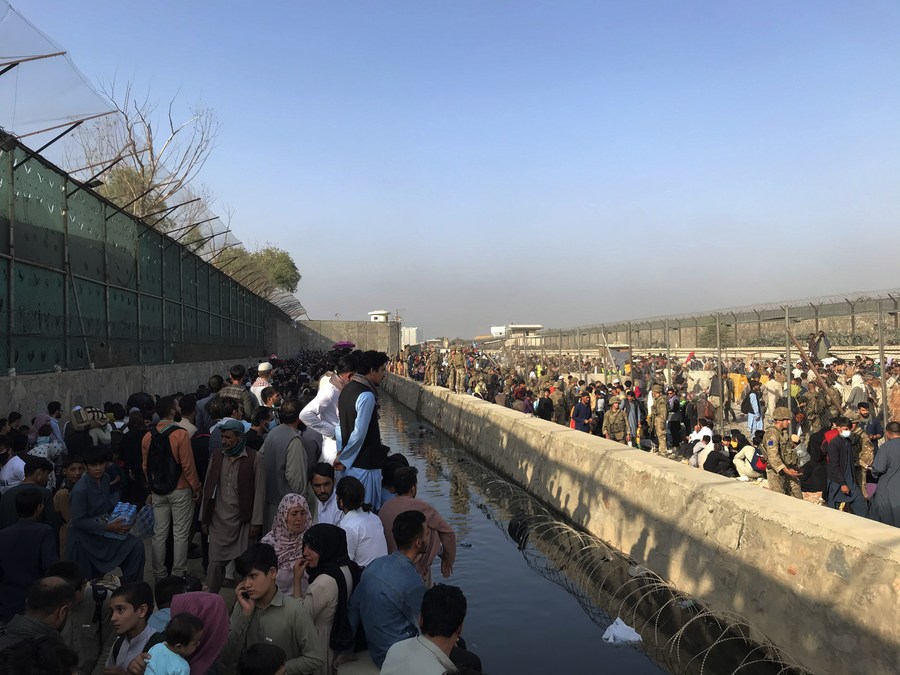
So, is it an “intelligence failure”? No. It is a policy failure meaning that it is a failure of US foreign policy and the national strategy supporting it. The policy failure is at the White House level where “the buck stops” as President Harry Truman famously said. The policy failure also is at the door of Congress which failed in its advisory and oversight roles.
The essence of the policy failure is that the US should not have invaded Afghanistan in the first place. Some symbolic airstrikes as reprisal for 911 were sufficient. The ground invasion was folly as the last two decades have shown.
The US mission itself was delusional. Large scale counterinsurgency (COIN) campaign against the local Taliban was shown to be a dangerous fantasy. A limited counterterrorism mission involving special operations against the foreigners of al Qaeda might have had some utility but was rejected. COIN and “nation building” were the missions chosen because they were lucrative for the military-industrial complex.
When Bush initiated the Afghan and Iraq wars the Pentagon took over American external relations. The US was a country at war, diplomacy was shoved aside, and foreign policy was militarized. It still is. US ruling circles believed that militarization of US foreign policy was part and parcel of Washington’s ability to enforce hegemony. Two decades later, the result is before the entire world.
For two decades, the US military-industrial complex lied to the American people about the objectives of the Afghan war and about its “success”. Some estimate that about $2 trillion was spent on this war and about $5 trillion was spent on the Iraq war.
All the while, Congress was lied to, the American people were lied to, and the White House was lied to by the Department of Defense, the Joint Chiefs of Staff, and the related military-industrial complex. Official studies and documents are now emerging to establish this fact of American politics.
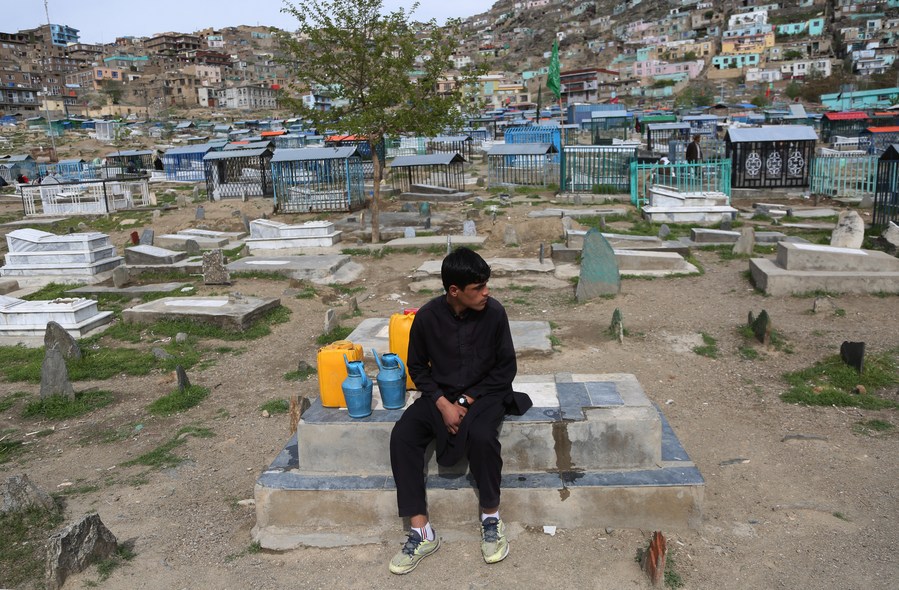
It will become more evident that the politicians and Pentagon suppressed intelligence over the years that did not fit the official narrative of “success”. Further, it will become more evident that the rapid collapse of the wholly corrupt Ghani puppet regime was anticipated in US intelligence scenarios which were reported to and available to relevant official decision makers.
Will Congress fully investigate the greatest strategic mistake in US history, a strategic mistake worse than Vietnam? That remains to be seen although it is unlikely that the American people will get the whole truth any time soon. Americans still don’t know the truth about the Kennedy assassination.
So what is the new situation in Afghanistan and where is it heading?
As the dust settles, it is clear that the Taliban have a dominating position in the country. There are many ethnic groups and variations of religion in Afghanistan. So, it remains to be seen how the process of forming a new government will go. Inclusiveness will be an important factor not only for internal stability purposes but also for the international community.
Despite the Western obsession for so-called “democracy” and “human rights” the fact is that state-to-state relations are what counts. Western delusions and pretexts should not interfere with a realistic assessment of the situation and policy.
The principle of non-interference in the internal affairs of states has been a principle in the West since the Peace of Augsburg in 1555. Of course, over the last half millennia, the principle has had its ups and downs in terms of observance. Nonetheless, it can be helpful in stabilizing interstate relations. The US invasion of Afghanistan was exactly in violation of this basic principle.
With the collapse of the US puppet regime in Afghanistan, Washington has lost its place in the regional game. China, Russia, Iran, and Pakistan hold the cards now. India would be advised to reflect carefully on its policy. It might be prudent for Taiwan and Ukraine also to take notice and reflect.
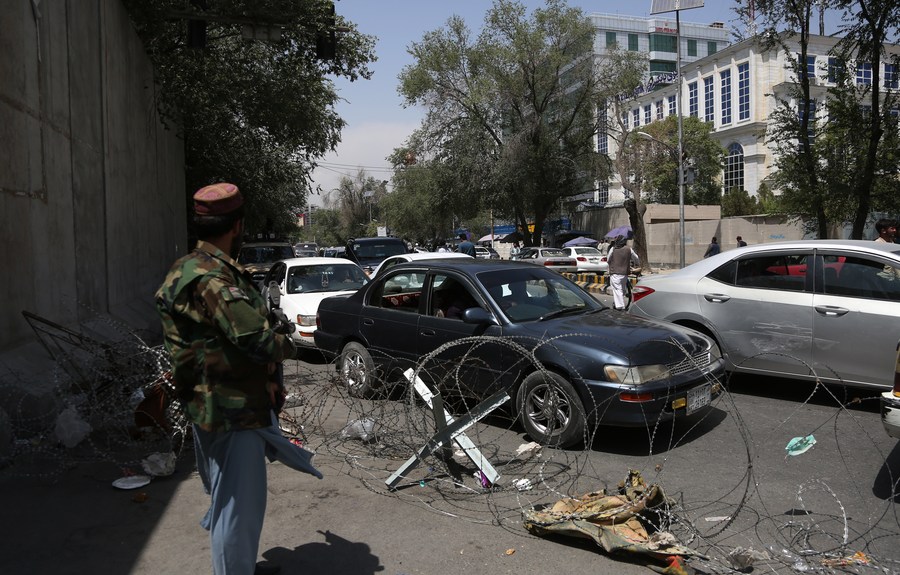
The logic of the situation is that a transitional government is to be formed and then diplomatic recognition be sought. Naturally, this involves the transition government behaving responsibly and demonstrating that it will not be a base for foreign international terrorist organizations whether Arab, Uyghur, or whomever.
China and Russia have a particular concern about terrorism that has been made explicit by both to the Taliban leadership in recent contacts.
With a new transitional government up and running Afghanistan can establish relations with the Shanghai Security Organization (SCO) and the Collective Security Treaty Organization (CSTO). In this way, regional security and economic development can be set in motion. The United Nations can play an important role as well.
China’s Belt and Road initiative offers many possibilities for Afghan economic development. Of course, infrastructure is a number one consideration to foster conditions for development. Afghanistan’s energy and mining potential are well known. Agricultural development is essential and can involve high value substitute crops for the current notorious opium poppy crops.
Of course, time will tell but there are reasons for hope in a positive outcome despite the tragic situation of the past two decades. Afghanistan has a long and ancient history and its people certainly have shown themselves resilient. Now the challenge is to foster conditions of peace so that development may take place.
What will Washington do now?
For the immediate days ahead the issue is evacuating Americans safely. After that, Washington must reflect carefully on its future policy. Hegemony and rule through puppet regimes have failed in Afghanistan. A constructive new policy is needed but whether Washington has the competence and imagination to create a new Afghan and regional policy remains to be seen.
The article reflects the author’s opinions, and not necessarily the views of China Focus.
 Facebook
Facebook
 Twitter
Twitter
 Linkedin
Linkedin
 Google +
Google +





